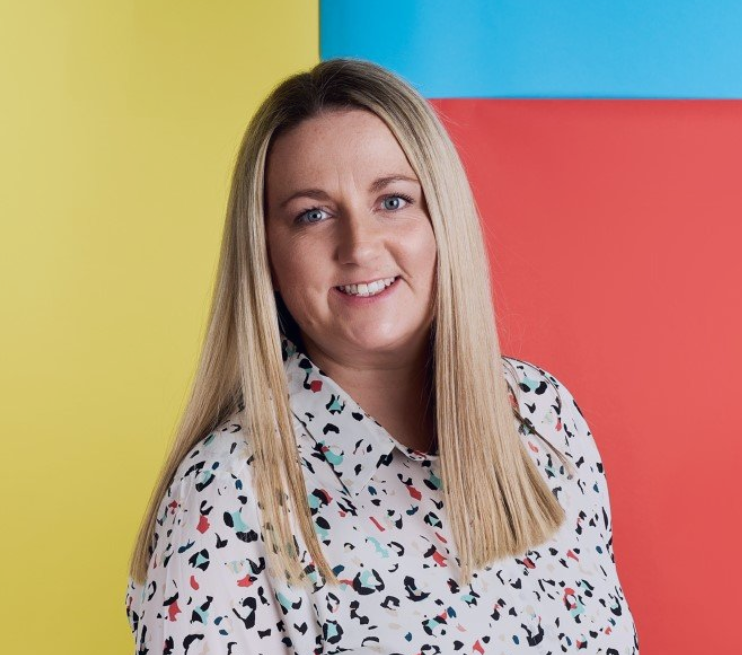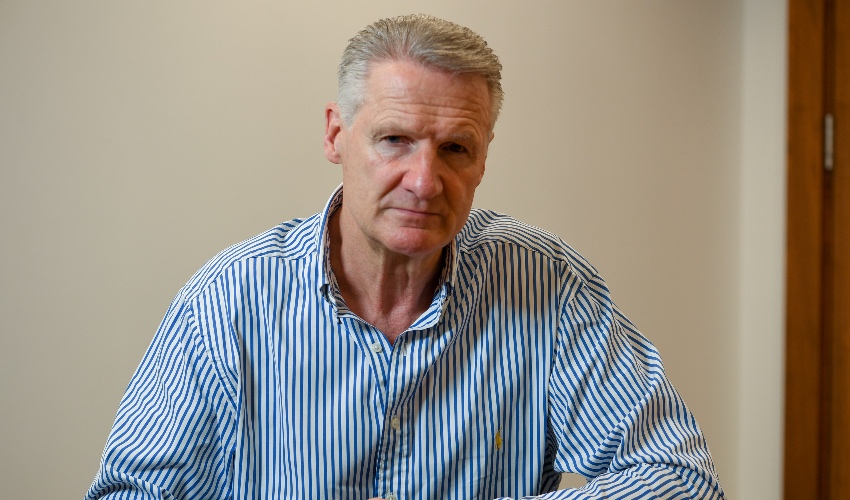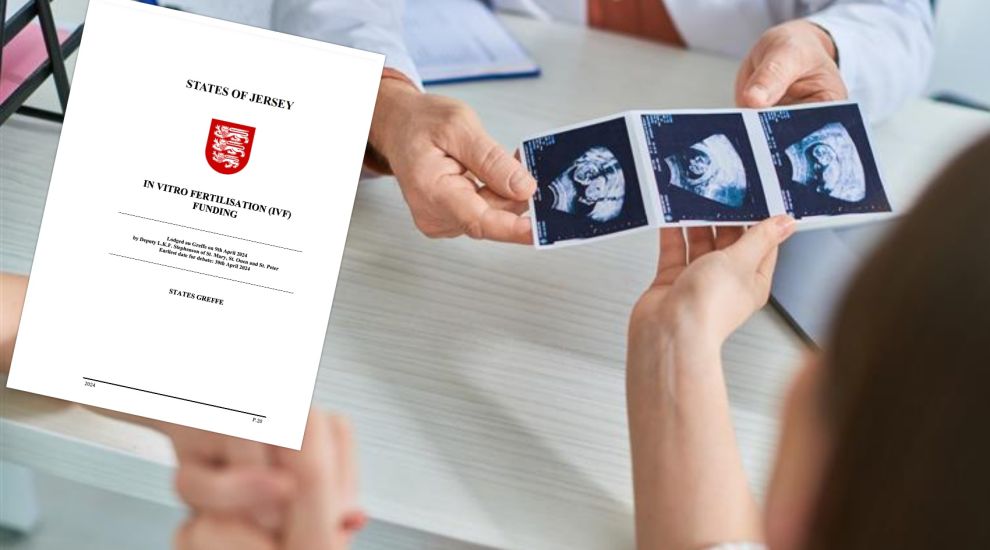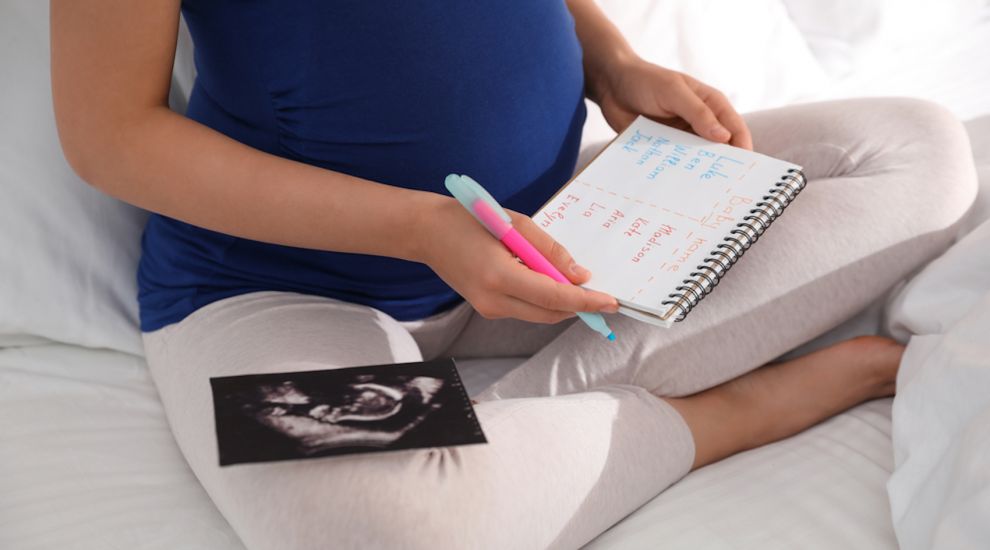


A consultation is set to be launched on what changes to make to the “archaic” funding model for fertility treatment after politicians backed an amended proposition to replace the current means-tested system.
Deputy Lucy Stephenson, who has personal experience with infertility and is a founding governor of fertility support charity Tiny Seeds, lodged a proposal in early April to reform existing funding, arguing that the current arrangement was "outdated".
In her proposition, she said the threshold for IVF funding was set at such a low level at £40,795 that no one had ever qualified for it.

Pictured: Deputy Lucy Stephenson has personal experience with infertility and IVF treatment.
Deputy Stephenson instead said the island should adopt UK clinical guidelines from the National Institute for Health and Care Excellence (NICE), which currently recommends funding three full cycles of IVF for women under 40, or one full cycle for those aged 40–42.
During the debate yesterday, she cited recent statistics from the Births and Breastfeeding Profile report that showed that the proportion of women having a baby in their 20s has nearly halved in recent years.
But States Members instead backed an amendment to her proposition lodged by Health Minister Tom Binet by 28 to 15.
Deputy Binet's amendment said that new criteria related to financial support for IVF treatment should be developed in consultation before any changes to the funding model are made.
However, he indicated his support for replacing the means-tested model within his amendment.

Pictured: Health Minister Tom Binet emphasised the need for careful consideration before committing to funding IVF services aligned with NICE guidelines.
Deputy Binet said: "In so doing, we will ensure that any IVF service funded by the government accords with good clinical standards, even if it does not provide up to three publicly funded IVF cycles for all people."
Deputy Binet added that this would help manage costs, with the Health Department currently facing an £18m shortfall.
"I found Deputy Stephenson's augments extremely compelling and I would love to support the proposition un-amended," he said.
“The amendment is realistic."
His arguments were supported by Deputies Moz Scott and Barbara Ward, who stressed the importance of ensuring balanced books.
"We need to ensure we live within our means and don't compound this overspend," Deputy Ward said.
Deputy Stephenson raised concerns that the Health Minister's amendments to her proposition will result in a "reduced offer for patients".
This was echoed by Deputy Jonathan Renouf who also felt the amendment would lead to a “lesser service” for patients.

Pictured: Some islanders have admitted having to sacrifice their mortgage deposits to generate IVF funds during the cost-of-living crisis.
Meanwhile, former Health Minister Deputy Karen Wilson said the amendment introduces "rationing" into the debate and "does nothing to improve outcomes".
Deputy Louise Doublet added: "We should support those who experience infertility and want to have children and remove any barriers we can.
"The financial overspends in the health service will get much, much worse if we do not have a working population to support the health service."
Deputy Stephenson also questioned why the government wanted to "create more work for itself" by creating its own guidance instead of following NICE guidelines.
"There is no need for further delays, especially where every month does count for those needing treatment," she said.
“It does feel like we are trying to re-invent the wheel and I question why.”

Pictured: Deputy Lucy Stephenson called on the government to align the IVF funding model with clinical guidelines used in the UK.
Deputy Hilary Jeune agreed, stating that it was unclear how the island would develop its own “good clinical standards” given the recent performance of the department that has not been “up to scratch”.
Deputy Miles pointed to recent critical reports on local clinical standards, specifically in the Maternity and Rheumatology Department, which identified that prescribing was outside any of the national and international guidance available, including NICE.
She argued Jersey should adopt NICE's “national best practice".
Chief Minister Lyndon Farnham said he was also in favour of removing the "archaic" means-tested model – but said that Deputy Binet's amendment would not delay the proposal.
“The amendment commits to the same timeline as the proposition and we will ensure funding is included within the next Government Plan that will be lodged in July,” he said.
“We don’t want to become another NHS and we want to be able to choose and create our own rules that are right for Jersey. That is all that is behind the amendment.”
Deputy Rob Ward pointed to the fact that both the amendment and the main proposition were trying to remove the current funding model of means testing.
He also refuted the argument about the amendment causing delays, saying that the funding will be in the same cycle of the government plan.

Pictured: Deputy Stephenson's proposition (left) compared to Deputy Binet's amendment (right).
Members supported the amended proposition by 44 to one (Deputy Karen Wilson), with Deputy Tom Coles, who had a conflict of interest, abstaining.
Overall, the debate revolved around whether to follow NICE guidelines or develop Jersey-specific guidance for funding IVF treatment.
Opponents of Deputy Binet's amendment were concerned about compromises in patient care, while his supporters spoke about the budget limitations facing the Health department.
For the amendment:
Against the amendment:
Concern that IVF proposition amendments will result in "reduced offer for patients"
Politician pushes for better funding to support fertility treatment
"I sold my flat to be able to afford fertility treatment"
Fertility risk as Jersey families 'delay children due to cost of living'
Comments
Comments on this story express the views of the commentator only, not Bailiwick Publishing. We are unable to guarantee the accuracy of any of those comments.